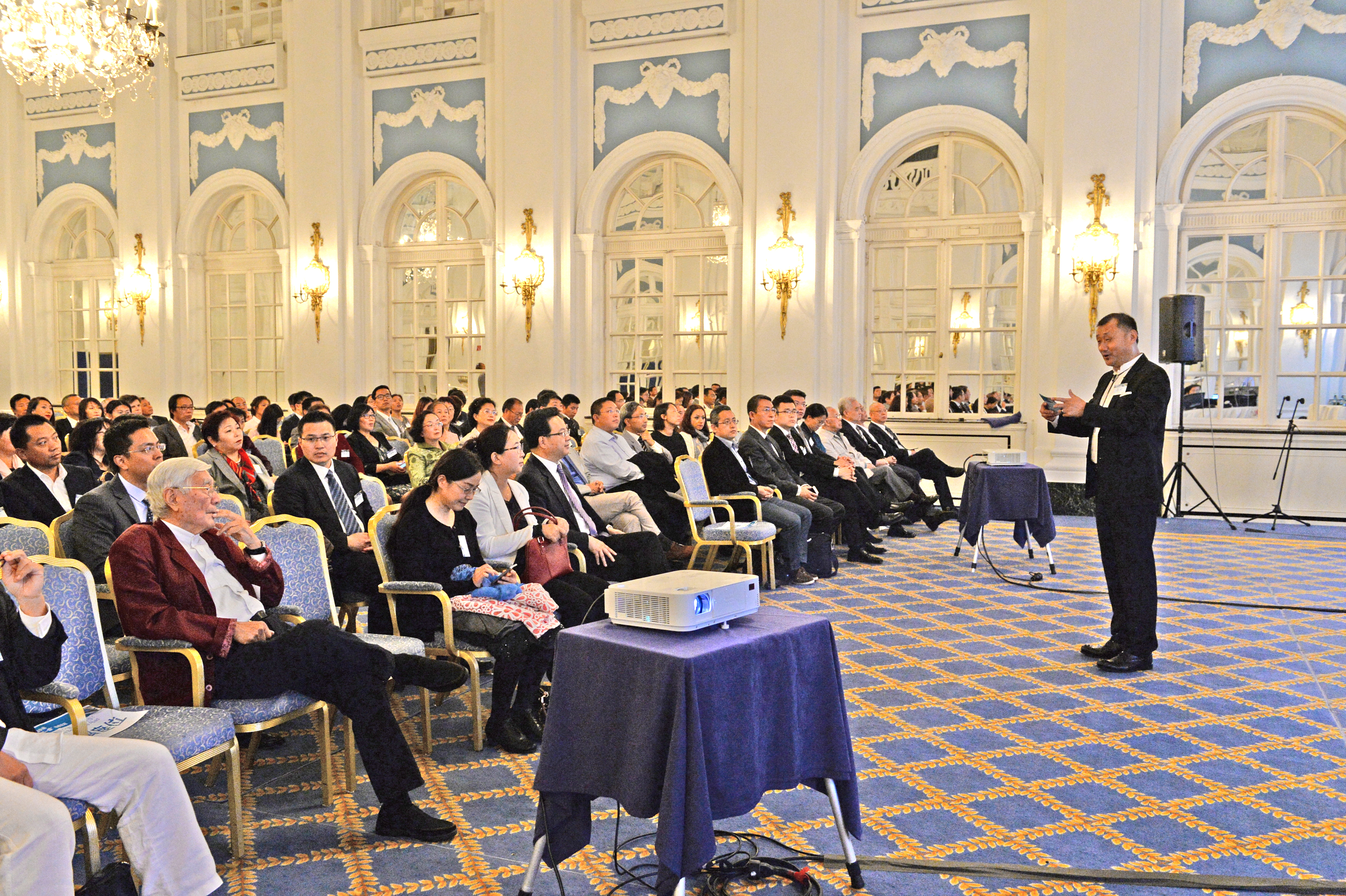Overseas Chinese to help promote ‘Belt and Road’

Overseas Chinese businesspeople in Germany gather in Hamburg, Germany on Sept. 6 to brainstorm how they can take part in the “Belt and Road” initiative.
The “Overseas Chinese and the ‘Belt and Road’ initiative” symposium was held by Huaqiao University (HQU) and the Center for China and Globalization (CCG) on Nov. 7 in Beijing.
Attendees to the symposium brainstormed about ways overseas Chinese can play a part in promoting the nation’s “Belt and Road” initiative. They discussed topics like ways in which overseas Chinese may strengthen China’s connection with the countries along the proposed routes and how academia may improve studies on overseas Chinese.
Zeng Lu, vice-president of HQU, pointed out five aspects in which overseas Chinese could promote the initiative. Economically, the economic strength of overseas Chinese and their influence lays a significant foundation for promoting the “Belt and Road” initiative in host countries. Also, they will significantly influence how the initiative may be integrated into local policies.
Intellectually, overseas Chinese have a background in Chinese culture and are at the same time familiar with the local political, economic and social environment, which makes them significant intellectual resources for Chinese investors and the Chinese government as they promote the initiative, Zeng said.
In addition, thousands of overseas Chinese associations in local countries will also provide platforms for non-governmental communication between China and the local people. And, last of all, with the development of local media established by overseas Chinese, the initiative may also benefit from the mutual understanding engendered by these media, Zeng said.
Overseas Chinese are the natural facilitators of the “Belt and Road” initiative, said Wang Huiyao, director of the CCG, adding that overseas Chinese have played an irreplaceable role in introducing foreign investment since China’s reform and opening up. “We should now make policies encouraging them to support China in promoting the ‘Belt and Road’ initiative in local countries,” Wang said.
In the past three years, the promotion of the initiative focused more on the hardware connection projects, such as infrastructure, while the focus in the future should be “soft connections” between the peoples, said Zhao Lei, a professor of international strategies from the Party School of the CPC Central Committee. Overseas Chinese not only facilitate and synergize the process. They are catalysts as well, Zhao said, adding that they may help to build an environment of mutual appreciation, understanding and respect among peoples.
Long Denggao, director of the Center for Studies on Overseas Chinese Businessmen at Tsinghua University, said, at present, some large-scale companies established by overseas Chinese have been deeply engaged in the “Belt and Road” initiative, while some small companies and ordinary individual overseas Chinese were still unclear as to how they may engage themselves in the initiative. Researchers and policymakers should pay more attention to address this problem, he said.
Although most countries along the “Belt and Road” are emerging countries, some developed countries that may not be along the proposed routes are also significant participants in the initiative, and overseas Chinese play various roles in these two kinds of markets, Zhao said, adding that relevant research should focus more on these differences to develop some models, theories and case studies to fully realize the potential for overseas Chinese to take part in the process.
Mao Li is a reporter at the Chinese Social Sciences Today.
